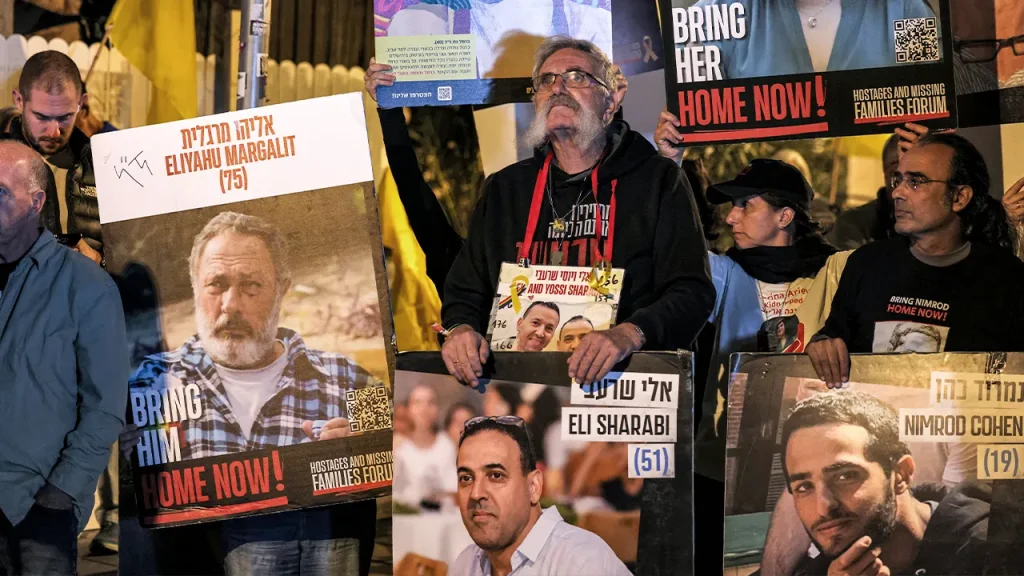Israel Confirms Return of Deceased Hostage Eliyahu “Churchill” Margalit After More Than Two Years
In a poignant development in the ongoing hostage crisis, Israel announced on Saturday that the remains handed over by Hamas through the Red Cross belonged to Eliyahu Margalit, affectionately known as “Churchill.” Margalit was murdered during the October 7, 2023 attacks, and his body had been held in Gaza for over 742 days. The Israel Defense Forces (IDF) emphasized that “Hamas is required to fulfill its part of the agreement and make the necessary efforts to return all the hostages to their families and to a dignified burial.” This return represents a bittersweet moment for the Margalit family, who have endured unbearable uncertainty while awaiting news of their beloved father and husband.
The tragedy of Margalit’s story cuts deeply into the fabric of everyday Israeli life. On that fateful morning of October 7, he had simply gone to feed his horses at the stables in Kibbutz Nir Oz, a routine task for the man who had cared for the kibbutz’s cattle for many years. According to reports from The Times of Israel, the horses he loved were taken along with him. In a cruel twist of fate, Margalit’s daughter, Nili, was also abducted during the attacks but was fortunate enough to be released during the brief November 2023 ceasefire. Margalit leaves behind a wife, three children, and grandchildren who now face the difficult task of rebuilding their lives while honoring his memory.
“Our beloved Eli has returned home, 742 days after he was murdered and kidnapped from Kibbutz Nir Oz,” the family said in a statement. “We thank the people of Israel and the Hostage Families Forum for their support in the long struggle for his return, and promise that we will not stop or rest until the last of the hostages is returned for burial in Israel.” This sentiment reflects the broader national commitment to bringing home all hostages, a mission that has united Israelis across political divides. Prime Minister Benjamin Netanyahu’s office expressed that “the government of Israel shares in the deep sorrow of the Margalit family and all the families of the fallen abductees,” adding that they remain “determined, committed and working tirelessly to return all of our fallen abductees for a proper burial in their country.”
The Hostages and Missing Families Forum, established in the aftermath of the October 7 massacre, offered condolences to Margalit’s family while highlighting his character. They described him as “a cowboy at heart” who was connected to an organization called “Riders of the South,” which has brought horseback riding enthusiasts together for more than five decades. “Alongside the grief and the understanding that their hearts will never be whole again, Eliyahu’s return brings some measure of solace to a family that has lived in unbearable uncertainty and doubt for over two years,” the forum stated, capturing the complex emotions that accompany such returns – relief at having a loved one back for proper burial mixed with renewed grief at the confirmation of death.
Margalit becomes the tenth deceased hostage to be returned to Israel since the conflict began, a sobering statistic that underscores the human cost of the ongoing situation. The IDF had initially confirmed his death in December 2023, but his remains had remained in Gaza until now. The return of bodies represents an important step for families seeking closure, though it also reopens wounds and serves as a painful reminder of lives cut short. For communities like Kibbutz Nir Oz, which suffered tremendous losses during the October 7 attacks, each return – whether of the living or the deceased – carries profound significance in their collective journey of healing and remembrance.
While Margalit’s remains have now been returned, the Hostages and Missing Families Forum emphasized that the remains of 18 others are still in Gaza, including two U.S. citizens: Itay Chen, 19, and Omer Neutra, 21. Their statement that “we will not rest until all 18 hostages are brought home” reflects the ongoing commitment of both families and the Israeli government to securing the return of all hostages. Each return, while deeply personal to the families involved, also represents a small step forward in addressing the broader humanitarian crisis that began on that October morning. For the Margalit family and others like them, the process of grieving can at least now proceed with the dignity of proper burial rites and a physical place to remember their loved one.













